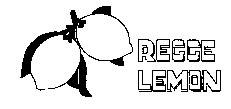D.C. District Court Tosses Out TTAB "Appeal" That Raised Only New Issues
Section 21(b) of the Trademark Act, 15 U.S.C. Sec. 1071(b), provides for review of a TTAB decision by way of civil action in a federal district court. Mitchell Cosmetics took that route after the Board's unfavorable decision in Opposition No. 91122317, but its lawsuit was short-lived. The district court threw the case out because Mitchell raised only issues that had not been raised before the TTAB. Mitchell Cosmetics SARL v. Pramil S.R.L. (Esapharma), Civil Action No. 04-1557 (RCL) , 2005 U.S. Dist. LEXIS 18915 (D.D.C. August 29, 2005). [TTABlog update: see the 2008 posting (here) entitled "DC Circuit Rules TTAB Party May Raise New Issues in 21(b) Civil Action for Review."]
 Mitchell and Opposer Pramil each claimed rights in the identical design mark (shown above) for skin and body lotions and like products. Thus the only issue in the Section 2(d) opposition was priority of use, and Pramil prevailed. The Board therefore sustained the opposition.
Mitchell and Opposer Pramil each claimed rights in the identical design mark (shown above) for skin and body lotions and like products. Thus the only issue in the Section 2(d) opposition was priority of use, and Pramil prevailed. The Board therefore sustained the opposition.In its appeal, Mitchell did not question the ruling on priority, but instead raised three entirely new issues: (1) that Pramil's product contains an unapproved drug and therefore cannot be legally sold in the U.S.; (2) that Pramil abandoned its rights in the mark; and (3) that Pramil's agents had agreed with Mitchell that the mark would be jointly owned.
 Pramil moved for judgment on the pleadings (FRCP 12(c)), or alternatively for summary judgment, arguing that "a party cannot raise an issue in the District Court that was not raised in the Patent Office proceedings." The court agreed, quoting Gold Seal Co. v. Weeks, 129 F. Supp. 928, 937 (D.D.C. 1955):
Pramil moved for judgment on the pleadings (FRCP 12(c)), or alternatively for summary judgment, arguing that "a party cannot raise an issue in the District Court that was not raised in the Patent Office proceedings." The court agreed, quoting Gold Seal Co. v. Weeks, 129 F. Supp. 928, 937 (D.D.C. 1955):"we are satisfied that Congress did not intend, by setting up review in this court, to transfer the functions of the Patent Office to the District Court.... We will not pass upon those claims which have not first been considered on the merits by the Patent Office."
The court recognized that the three issues set out in Mitchell's complaint "were never [pled] nor addressed by the parties in their briefs and they are not mentioned in the TTAB's decision."
"Thus all plaintiff's claims here are new issues that are outside the scope of this Court's review. The governing law does not allow the Court to hear the entire trial testimony of the plaintiff for the first time when no testimony was presented before the TTAB concerning these issues. To have a complete trial where all the evidence was being presented for the first time would also be improper since it is beyond the scope of review of the TTAB rulings that Congress established for this Court."
And so the Court granted defendant's motion to dismiss.
Text copyright John L. Welch 2005




0 Comments:
Post a Comment
<< Home